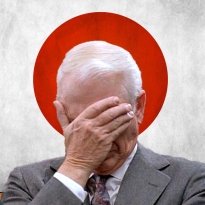 Japanese lottery revenue rose 9.3% in the fiscal year ending March 31, according to data released this week by the Internal Affairs and Communications Ministry. The rise is attributed in part to sales of the Green Jumbo Lottery, the proceeds of which were earmarked for earthquake/tsunami relief efforts. Total lottery receipts amounted to ¥1.004 trillion (US$12.5b), the first time in three years the trillion-yen barrier has been breached after hovering around this level for most of the last decade. In a bid to sustain the rise, Japanese politicians are talking about lifting the current jackpot cap on the country’s main lottery from ¥300m to ¥750m. Up, up and away…
Japanese lottery revenue rose 9.3% in the fiscal year ending March 31, according to data released this week by the Internal Affairs and Communications Ministry. The rise is attributed in part to sales of the Green Jumbo Lottery, the proceeds of which were earmarked for earthquake/tsunami relief efforts. Total lottery receipts amounted to ¥1.004 trillion (US$12.5b), the first time in three years the trillion-yen barrier has been breached after hovering around this level for most of the last decade. In a bid to sustain the rise, Japanese politicians are talking about lifting the current jackpot cap on the country’s main lottery from ¥300m to ¥750m. Up, up and away…
The furor that caused Japan’s leading social game companies to voluntarily shut down their ‘kompu gacha’ games last week may not be over. After the Daily Yomiuri revealed that Japanese regulators were growing concerned over the virtual card-collecting games’ similarity to gambling, the country’s six largest social game companies took the initiative of phasing out the games by the end of this month. Even though analysts described these companies as being “incredibly dependent” on kompu gacha for driving profits, the companies appeared to rationalize that it was better to kill their golden goose themselves rather than have regulators step in and impose even harsher measures.
But it may be too late. On Monday, the Yomiuri published a followup interview with an anonymous social game software engineer, in which the mechanics behind kompu gacha games were exposed to the light. In games in which players attempt to complete sets of cards by purchasing individual cards sight unseen – and the odds of receiving a specific card are unspecified – the engineer claimed it was standard practice to adjust the odds of acquiring certain valuable cards based on the transition of real-time item sales, the number of playing users, etc., with the aim of striking a balance between keeping players playing (and buying) without bleeding them to the point they got frustrated and quit.
More damning, the engineer said the key was “making ‘haijin kakinsha’ players use the game.” For those who don’t speak Japanese, haijin translates as ‘wreck’ while kakinsha is a free spender. (Draw your own conclusions from there.) “It’s our goal to make more than 10% of all gamers spend money. It’s important to keep their spending within certain bounds, since they may not come back to the game if we squeeze too much out of them.” The engineer said computers constantly monitored players’ spending status and fed hourly email updates to developers, who would then tinker with the odds to hit that aforementioned sweet spot. The engineers even kept track of online chatter in player forums to determine if too many users were complaining about the difficulty of obtaining certain cards.
While Zynga struggles to get more than 2% of its users to actually open their virtual wallets, a Neo Marketing Inc. study this month of 500 Japanese social game players determined that 43% had splashed out for virtual goods, with 2.4% spending over ¥10k ($125) over the past month. Prior to this current brouhaha, Mitsubishi UFJ Morgan Stanley Securities analysts expected total revenues from the country’s social gaming industry would hit ¥464b ($5.78b) in 2012. But social game companies are now worried that other gacha games – in which rare virtual items are awarded based on collecting a line of themed items or a bingo-style line of numbers – will be next to attract regulators’ scrutiny. Those analysts may want to revise those projections.





